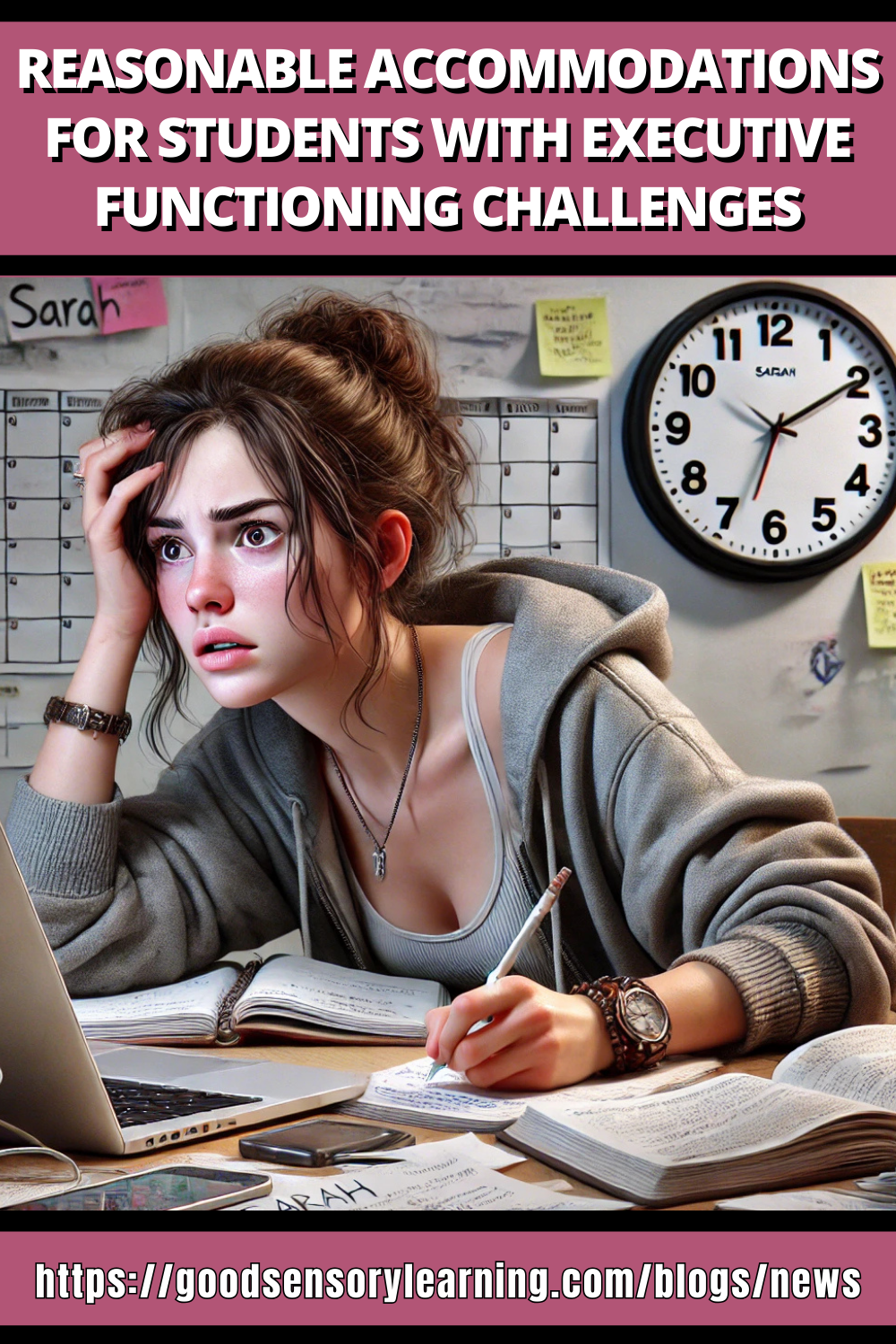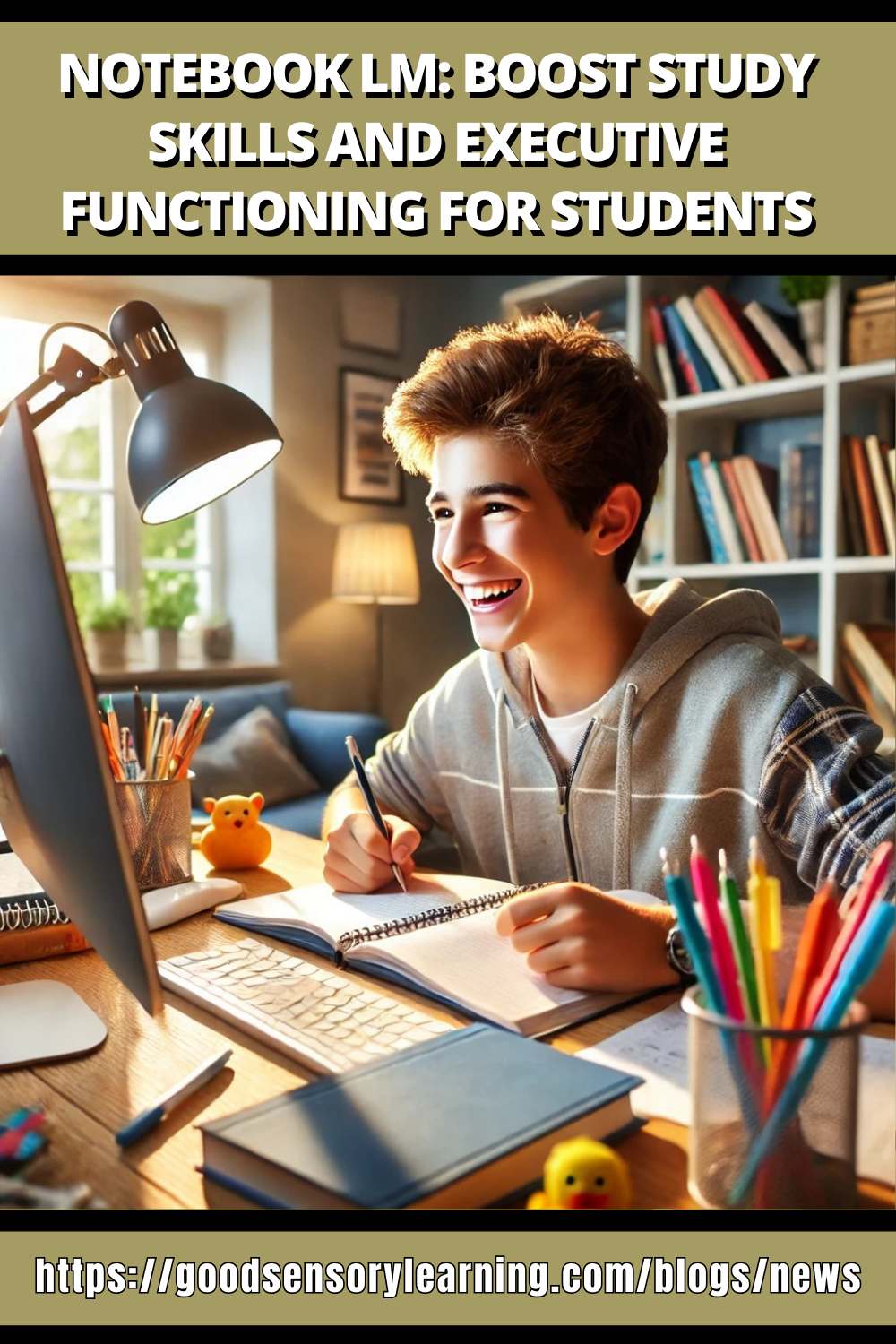15 Ethical Ways Students Can Use AI Tools to Boost Learning
As an educational therapist and executive functioning coach, I’ve seen how technology can be a powerful ally in supporting students. Artificial Intelligence (AI) is one such tool that offers immense potential for enhancing learning.

For students with learning disabilities and executive functioning challenges, AI can help level the playing field, providing tailored support that fosters independence and success. However, when new technologies like spell-checkers first emerged, many teachers initially labeled them as cheating. Over time, educators came to recognize their value in allowing students to focus on higher-order skills like organization and clarity. Similarly, today’s AI tools are transforming education by addressing specific learning challenges, especially for those who struggle with planning, attention, and social reasoning.
The Ethical Use of AI: Setting the Foundation
Using AI to assist with assignments can be a game-changer, but ethical considerations must come first. Here are some guiding principles:
- Understand the Purpose of AI Tools: AI tools like ChatGPT and Claude are designed to assist, not replace, critical thinking and original work. Students should use these tools to refine and support their understanding rather than generating entire assignments.
- Avoid Plagiarism: Submitting AI-generated content as one’s own work violates academic integrity policies. Students should use AI to brainstorm ideas, refine grammar, or clarify concepts while ensuring their submissions remain their own.
- Cite Sources Appropriately: If AI tools provide information, students should verify the accuracy and credit the source when applicable. Transparency about how AI was used demonstrates responsibility and integrity.
- Learn from AI, Don’t Rely on It: AI can be an excellent tutor, providing explanations or breaking down complex concepts. Students should aim to learn from these interactions and apply that knowledge independently.
How AI Can Support Assignments
When used responsibly, AI can empower students in numerous ways. Here are 15 specific problems students might face and how AI tools can ethically assist:
1) Stuck on a Math Problem:
- Tool: ChatGPT, Gemini
- Sample Problem: Solve for x: 3x + 5 = 20.
- Prompt: “Walk me through the steps of solving the following math problem: 3x + 5 = 20.”
-
AI tools can provide step-by-step instructions:
- Subtract 5 from both sides: 3x = 15.
- Divide both sides by 3: x = 5.
- This approach helps students understand the methodology rather than simply answering.
2) Breaking Down Large Tasks:
- Tool: Goblin Tools - Magic To Do
- Prompt: “Help me break down my history project into smaller, manageable tasks.”
- Goblin Tools can create actionable to-do lists, making overwhelming assignments feel more achievable.
3) Evaluating Tone in Writing:
- Tool: Goblin Tools - Formalizer
- Prompt: “Can you analyze the tone of this email to ensure it sounds professional and respectful?”
- Goblin Tools can assess tone, helping students improve communication skills for academic and professional settings.
4) Struggling with Writing Structure:
- Tool: ChatGPT, Claude
- Topic: “Can you help me outline an essay about the impact of technology on education?”
- AI can suggest a framework for essays, helping students organize their thoughts while ensuring the content is their own.
5) Difficulty Understanding a Concept:
- Tool: ChatGPT, Claude
- Topic: “Explain the concept of photosynthesis in simple terms.”
- AI can break down complex ideas into digestible explanations, acting as a virtual tutor.
6) Improving Grammar and Clarity:
- Tool: Grammarly, Hemingway Editor
- Prompt: “Can you suggest edits to improve this paragraph about climate change?”
- Tools can refine grammar and clarity while maintaining the student’s voice.
7) Research Assistance:
- Tool: Perplexity AI
- Topic: “Find reliable sources about the effects of beaver dams on the environment.”
- AI-powered tools can provide links to relevant articles, saving time while encouraging further independent exploration.
8) Building Study Materials:
- Tool: Quizlet
- Prompt: “Create flashcards to help me study for a test on the American Revolution.”
- Platforms like Quizlet can generate personalized study aids by copying and pasting your class notes into their AI tool.
9) Time Management:
- Tool: Shovel, Focusmate
- Prompt: “Help me plan my week to finish my assignments and prepare for tests in math and history.”
- AI planners can assist in creating effective schedules, helping students manage their workload.
10) Interpreting Social Cues:
- Tool: Goblin Tools - Judge
- Prompt: “How can I interpret the following email?”
- Goblin Tools can help students navigate social interactions and improve nonverbal reasoning skills.
11) Reading Between the Lines:
- Tool: ChatGPT, Bard
- Prompt: “What is implied by the statement: ‘I’m not sure that will work for us’?”
- AI tools can help students identify underlying meanings in conversations, improving inferencing and critical thinking.
12) Improving Presentation Skills:
- Tool: ChatGPT, Gemini
- Prompt: “How can I make my presentation on renewable energy more engaging?”
- AI can suggest visual aids, organization tips, and even practice scripts to build confidence and clarity.
13) Enhancing Cognitive Flexibility:
- Tool: ChatGPT, Claude
- Prompt: “Can you provide alternative solutions for solving this problem?”
- AI can encourage students to think in diverse ways by offering multiple approaches to a task, fostering adaptability and problem-solving skills.
14) Boosting Attention and Focus:
- Tool: Shovel, Focusmate
- Prompt: “Help me create a distraction-free study schedule for two hours of focused work.”
-
AI tools can help students organize time effectively and set achievable goals to sustain focus.
15) Expanding Working Memory Capacity:
- Tool: ChatGPT, Gemini
- Prompt: “Can you remind me of the steps for balancing chemical equations while I work on this example?”
- AI tools can help students retain and apply multi-step processes by providing real-time guidance and reinforcement, supporting their working memory.
Best Practices for Ethical AI Use
To maximize the benefits of AI while maintaining academic integrity, students should:
- Communicate with Instructors: If unsure about using AI for a specific task, students should ask their teachers for guidance. Clear communication fosters trust and ensures compliance with school policies.
- Verify Information: AI tools are not infallible. Students should cross-check facts and verify sources to ensure the accuracy of the information they use.
- Reflect on AI Use: After using an AI tool, students should assess what they’ve learned and how they can apply it independently. This reflection helps build confidence and mastery.
The Future of AI in Education
As AI continues to evolve, it will likely become even more integrated into learning environments. Institutions may develop clearer guidelines on ethical use, and educators may incorporate AI literacy into their curricula to help students navigate this landscape responsibly.
I explore topics like this regularly on my podcast, The Executive Function Brain Trainer, where we discuss how technology can enhance learning while fostering independence and ethical practices. If you’re interested in learning more about AI and its role in education, tune in for actionable strategies and insights.
For additional resources on executive functioning and learning strategies, visit my websites: Good Sensory Learning and Learning Specialist Courses. These platforms provide tools to support students in developing self-directed learning skills.
By using AI responsibly, students can harness its potential to enhance their education while upholding the values of honesty, integrity, and l lifelong learning.
Cheers, Erica
Dr. Erica Warren is the author, illustrator, and publisher of multisensory educational materials at Good Sensory Learning. She is also the director of Learning to Learn and Learning Specialist Courses.
- Blog: https://goodsensorylearning.com/blogs/news
- YouTube Channel: https://www.youtube.com/user/warrenerica1
- Executive Function Podcast: https://goodsensorylearning.com/pages/the-personal-brain-trainer-podcast-with-dr-erica-warren
- Store: http://www.Goodsensorylearning.com/
- Courses: http://www.learningspecialistcourses.com/
- Newsletter Sign-up: https://good-sensory-learning.kit.com/drericawarren




Leave a comment
This site is protected by hCaptcha and the hCaptcha Privacy Policy and Terms of Service apply.